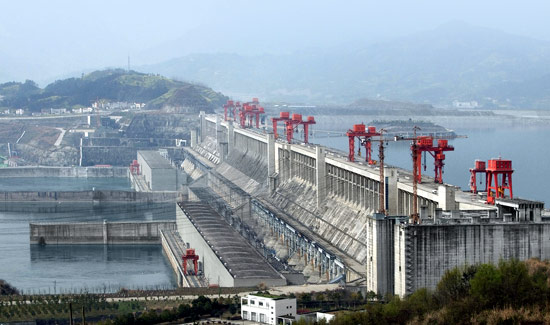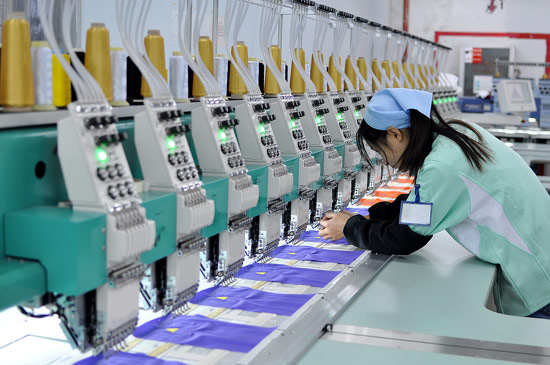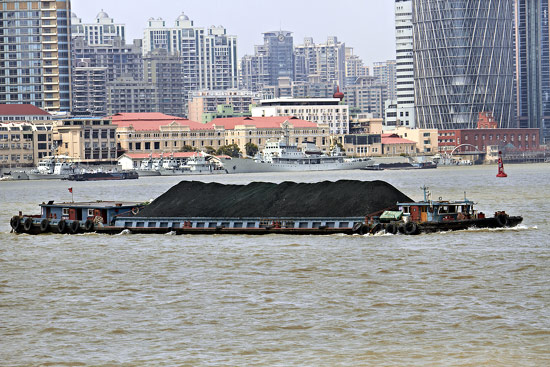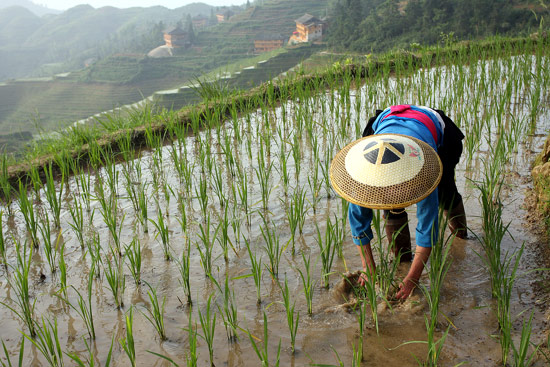Country Snapshot: Business Overview
China’s transformation from a centrally planned economy to a market-oriented one has encouraged private enterprise, resulting in one of the globe’s fastest-growing economies and highest reductions in poverty over the last two decades. The government’s pragmatic shift toward a market economy has led to China’s current ranking as the world’s third-largest economy in terms of GDP. Yet per capita income remains low, and the nation faces significant challenges, including low domestic demand, environmental degradation, corruption, and the need to sustain adequate job growth for an urban-migrating populace, among other concerns.
Major Industries
Manufacturing has become China’s most important industry since the nation opened up to free trade in 1978. The country manufactures machines; textiles and apparel; armaments; consumer products such as footwear, toys, and electronics; foodstuffs; transportation equipment such as cars, locomotives, ships, and aircraft; telecommunication devices such as telephones; and satellites, plus the commercial space vehicles that launch them.
Trade Overview
Hong Kong purchases 17 percent of China’s exports and is the country’s top trade partner. The US, Japan, and South Korea also buy significant percentages of mainland China’s exports. Top exports include electrical and other machinery such as data processing equipment; apparel and textiles; metals such as iron and steel; radio telephone handsets; and integrated circuits.
South Korea leads the list of import partners at 9 percent of purchases, followed by Japan, Taiwan, the US, Australia, and Germany. China purchases electrical and other machinery, metal ores, fuels, optical and medical equipment, motor vehicles, and soybeans.
Foreign Investment
Since China opened its gates to foreign investment, foreign capital has played a significant role in the national economy. By the early 2000s, China had become a top destination for foreign direct investment (FDI), with the majority of FDI coming from Hong Kong, Singapore, Taiwan, Japan, South Korea, and Macau. Britain, the US, France, and Luxemburg also invest heavily in China. The manufacturing industry attracts a great deal of foreign investment, as do the agriculture, animal husbandry, forestry, and fishery sectors.
Transparency (Rule of Law)
China scored 40 out of 100 in Transparency International’s Corruption Perceptions Index, with an overall ranking of 80th out of 177 nations. Sectors noted as problematic include finance, government procurement, construction, and banking. Both the government and private sectors lack transparency in public disclosure. The country also has weak independent judiciaries, and foreigners find little protection in the court system. In addition, challenges remain in enforcement of intellectual property rights due to copyright and patent infringement.
Regulatory Environment (Ease of Doing Business)
China ranks 96th out of 189 nations in the World Bank’s Ease of Doing Business Index. The country earns high marks for enforcing contracts. However, the nation received one of the lowest marks in the survey in the categories of starting a business, dealing with construction permits, and paying taxes.
Article written for World Trade Press by Rachel Levy Sarfin.
Copyright © 1993—2025 World Trade Press. All rights reserved.

 China
China 


